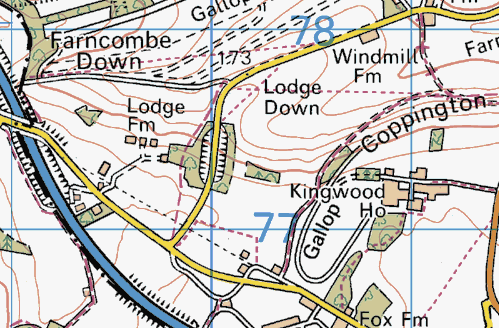
Lodge farm, also known as Prisoner of War Camp No. 25, was located close to Farncombe Down.
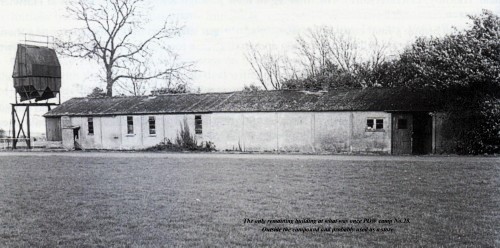
During 1941 the camp was established at Lodge Farm, 2-3 miles from Lambourn towards Baydon.
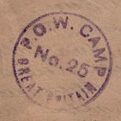
It was under the control of Army South Command and later transferred to South Midlands Command, designated as Camp No 25. It was build to house 500 prisoners and was classified as a labour camp for prisoners who had volunteered as agricultural workers and provided a useful supply of manpower to local farmers. Labour was organised by the War Agricultural committee and farmers paid for the prisoners services.
When it first opened it held Italians captured during the early stages of the North African Campaign. POWs began to arrive in August 1941 and were set to work in fields nearby.
On 26th June 1945 Lodge Farm Camp was re-classified for use by German POWs. A few Italian’s remained and were kept in a separate compound. Most of the Germans had been captured in the Channel Islands.

Some of the prisoners were to work on the Lambourn Railway erecting concrete posts etc.
The above information and further reading of this can be found in Roger Day’s book ‘Ramsbury at War’ and Lambourn Website would like to thank Roger for agreeing to share this information with you. You can also purchase ‘Membury at War’ Both interesting and fascinating insights into life around here during WWII.
Visit Roger’s website at www.ramsburyatwar.com
Recollections
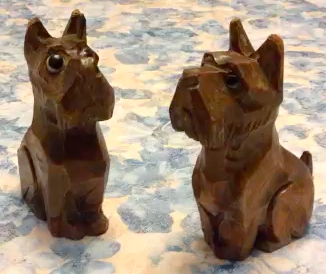
The prisoners worked on the farms in and around Lambourn. Janet Yuill, now resident in Canada recalls: “I know my father Bob Bowsher befriended some of the prisoners up at the POW camp. He bought a leather armed chair, I remember it had horse hair stuffing dad had it for many years. I also have pair of black dogs carved out of wood made by one of the prisoners.
Dad was born in 1925 and was in the local home guard when he was old enough he enlisted in the merchant navy. He remained in in England as his family was farming at Bockhampton Farm and that is probably how he befriended the prisoners while out on the tractor ploughing up near there.”
Kurt Adolf Walter
We have been very fortunate to hear from Kerryann about the interesting history of her Grandfather Kurt and his eventual connection to POW Camp 25. We thank her for allowing us to share his story.
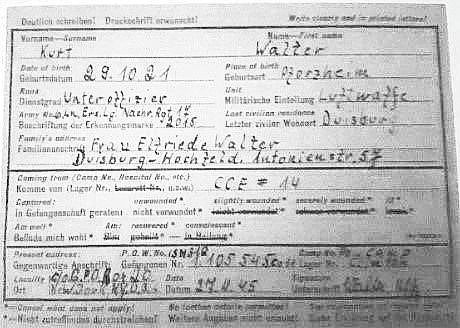
Kurt Adolf Walter was born on 29th October 1921 in Pforzheim, Germany to Anton Walter (1892-1968) and Klara Elise Mann (1896-1970).
Growing up in Pforzheim (near Stuttgart) with his siblings we would hope would have been a fairly good childhood, but this was to change some years later with WW11 approaching. Much of Pforzheim, 90%, was destroyed in February 1944, sadly loosing many citizens but Kurt’s parents survived.
Kurt was a young man of 24 when he married Elfried Schneider in Duisburg-Mitt, Duisburg, Germany in 1944 but by 1945 he was attached to the Luftwaffe. Luftwaffe, 5. Fallschirmdivision Army No. – 6 (LN Ers) Lg.N.Regt a Paratrooper and Sergeant.
Sadly, his brother was killed in action in Kirov, Gulag, Russia in 1945 being only twenty-five.
Kurt was involved in the Battle of the Bulge, known as the Ardennes Offensive, which took place from 16th December 1944-25th January 1945. Conditions were horrendous and they dealt with temperatures of -7c and snow. Kurt was eventually captured in Soller, Luxembourg by the Americans and detained as a POW, transported to Mississippi in USA and a short time later on 15th June 1945 he was moved to Camp Wheeler in Georgia, USA, and nine months later, 11th March 1946 Kurt was transferred to the UK to Camp 157, Bourton on the Water and eventually to Camp 25, Baydon, Wiltshire in 1947. He was released from Camp 25 on 31st December 1948

POW Details

Kurt remained in the UK and married again, having been divorced his first wife. He settled down with his family in Swindon where he spent the rest of his life until his death in 1998. He had certainly endured a great deal during his lifetime


Prisoner of War Post
Below is a letter written on War Office supplied stationery sent by Kurt, one of the German prisoners in 1948. The letter is primarily of personal thoughts to his family in Germany. It does refer to how he arrived with 200 men in January 1948 and that at the time of writing in April 1948 there are only 75 prisoners at Lodge Farm. Kurt tells his family how he is longing to come home to Cuxhaven in the North of Germany.
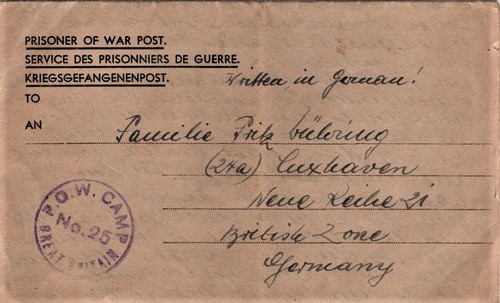

Liz Beard
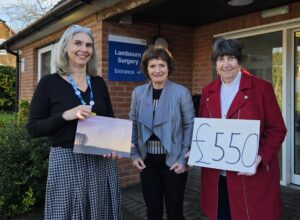

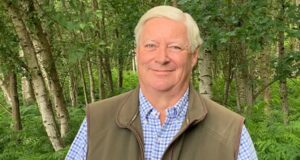

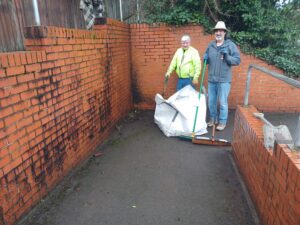
My father, Richard Hannaby, was a soldier assigned to the camp to guard/look after prisoners.
He used to walk into Lambourn on a Saturday night to the pub and occasional dances. For us one Christmas he brought a carved wooden duck toy like the dogs in the picture. Are there any more pictures available of the camp?
Hello Elaine, how very interesting! Any stories from his time there, would be of interest, do you still have the duck? Sadly, we don’t have any further photos of the camp, if you ever come across any we would be delighted to add them to the history. Thank you for contacting the website.
Hi Elaine, hi Liz. I find this quite interesting and also intriguing. I’m from Argentina, and I have a dog just like these. It has a lighter inside. I wonder how it arrived here
Hi Emilse, that is very interesting, what a pity that you didn’t know of their history, if only they could talk!
it’s not a surprise that people migrated to Argentina after WWII. I like to think that my dog was carved by the same person who made those in the pic. we can’t talk but we can change e-mail addresses. I’m not sure if it is ok to share personal info in this site, but I have no problem in sharing it. Regards from a very cold winter night in
Buenos Aires
My father was stationed there at the end of the war. He left with a written testimonial from the prisoners there in 1947, which I have. I would be willing to share if anyone is interested.
Hello Christine, thank you for contacting the website and with such a kind offer, that is amazing and I would love to put that on the page, if you would like to share any photos of your father during or after that time, I would be happy to add this too. If you would like to email me direct it is lizbeard@hotmail.co.uk. Many thanks again.
My father was a German prisoner of war there. Im interested in any information about the camp and the prisoners. Thank you
Hello Elizabeth. How interesting to know that, always happy to add a story if you have one. Sadly, we have very little information regarding the Camp, except what we have on the Website, it would be so nice to add more information
Good morning!
I am a PhD candidate from the University of Cambridge currently working on a history project concerning PoWs and agricultural labour in Britain and the United States. I am particularly interested in the interactions between local townspeople/farmers and PoWs stationed in camps nearby, including work arrangements, experiences of farm-work, and daily life. Additionally, I am also interested in community or parish archiving practices. Liz, if you have any contacts or information to share, I would be extremely grateful for your help. I am based in Cambridge but happy to travel to Lambourn anytime.
Christine Breakey, the testimonial sounds fascinating. I would love to have a read of it and would be grateful if you could share it with me.
My email is: zdi20@cam.ac.uk
If anyone has any relevant information or questions about the project, please do feel free to contact me!
Thank you for your communication Zsusanna. I will email you.
Dear all,
I have an Italian friend Ferdinando who was born in Wantage in 1948.
His father was a POW from around 1941 and was a blacksmith. The family returned to Italy in 1954.
Ferdinando is coming to visit in a weeks time and we will try to piece his childhood together and get to know more about his father. Ferdinando thinks his father’s last employer was Oswald Mosley who lived in a villa/mansion which Ferdinando remembers had a miniature railway setup.
I would be extremely grateful if you have any information which may be helpful.
My email address is kennethbaker42@gmail.com
Thankyou.
Ken Baker.
Thank you for your communication Ken. How interesting, Oswald Mosley is not a name which I have heard of around Lambourn but I will do my best to find some information, would he have been in Wantage area? I will do some investigating.
Liz
Dear Liz
Thankyou so much for your reply and your offer to help.
We know Primo – Ferdinando ‘s father was employed for 2 periods for a total of 5 years by Childrey Building Co as a blacksmith/mechanic at Stowhill Forge leaving in Feb. 1951.
Roger a historian? says Mosely left UK in 1951 to France and had a property in Wiltshire.
Over the next couple of days I will do a logical timeline resume of all the information we know to help form a better overall picture.
Thankyou.
Ken Baker.
Hi Kenneth. Childrey is a starting place! we are about 8 miles from there but have a contact who may have heard something, albeit rather early so she may not know. If easier please contact me on lizbeard@hotmail.co.uk
Regards
Liz
I came about this thread while doing a little detective work, and I know this is a bit of a long shot, but I live in the State of Wisconsin in the United States. My uncle recently passed and in his personal possessions we found a leather case which contains a set of vintage wood throwing darts. Handwritten on the inside of the case is “JF Cox, 38 Camp Close, Newbury Berks, England.
I have a keen interest in returning these to the family of the individual that once owned them, but I cannot find anything to point me in the right direction.
Does this information mean anything to any of you?
Thank you for whatever you might share!
Thank you for contacting the website, always good to hear from folk across the pond! Very interesting and I am ‘on the case’! I will come back to you, probably on your email. Regards Liz
Mr Grandfather Alfred Bryant worked in some form at the prisoner of war camp during the war and I can remember my father telling me that my grandfather was choking on a piece of food and a German prisoner did the heimlich technique manoeuvre on him and my grandfather never forgot this and it changed his way of thinking about the prisoners he was looking after. I only have one photo of him at the camp pushing his bicycle past one of the buildings will dig it out and put it on this site soon.
What a great story/memory of the POW camp and thank goodness your grandfather lived to tell the tale. It would be lovely to see that photo and put it on the website Michael or you can email to me at lizbeard@hotmail.co.uk
Many thanks in anticipation
Liz
Lambourn Website
On my grandparents mantle piece was a wooden ornament which was a line of family of elephants crossing a stone bridge about four elephants in this family as my grandfather worked at Lodge Farm near Baydon where a prisoner of war camp was situated and reading other people’s stories of wooden carvings so I’m guessing it’s where this carving came from.
Would really like to think so Michael, I am assuming that you no longer have this carving.
It was very interesting to read this as I have just recently found out my Grandfather, Kurt was a German POW and spent 1947 and 1948 at Lodge Farm Camp. I was adopted and never got to meet my Grandfather and putting together a lot of information about his time as a POW in England and thereafter. He married my Grandmother and resided in Swindon for the rest of his days. If anyone would be willing share any further information they may have I would be very much grateful.
Many thanks.
Hello Kerry, how very interesting, we would always love to hear more of your Grandfather’s story. We don’t have a vast amount of information regarding the POW’s at Camp 25 but I will check some information, perhaps you would share your Grand fathers surname. You can email it to me if preferable. lizbeard@hotmail.co.uk
Many thanks
Liz
Lambourn Website
I lived in Baydon between 2004 and 2012. I was speaking to a lady who lived in New Cottage just before I left the area. She told me her father had befriended aGerman POW from Lodge Moor. He had made her few bits and pieces and that he used to come to their home for meals.However they did not communicate with him following his release when he returned toGermany.
In the 1930’s during a severe drought the wells that Baydon depended on for water, dried up. Mosleys blackshirts brought barrels of water to Baydon to help out the villagers.. I understand that Oswald Mosley had a house between Aldbourne and Hungerford. But I have no confirmation.
Hello Pete. They seemed to be very good at making items..or should I say ‘carving’ pieces from odd pieces of wood, I hope she kept them. Yes, the Mosley’s lived at Crowood House nr Ramsbury. A visit last year was made by the son of one of Camp 22 ‘residents’ who worked for Oswald Mosley. The story of the barrels of water is interesting, not heard that before, thank you for sharing your memories.
At least three German POW’s stationed at 25 POW camp, Lodge Farm died between Sept 1946 & June 1947.
Accident? Disease? Other? I do not know.
But they were initially buried at Whitworth Road cemetery in Swindon.
Exhumed in 1958, and reinterred at Cannock Chase, Staffordshire.
The Three dead were:
Johan Feldvoss, age41, Died: 17 Sept 1946
Fritz Friedrich Feld, age53, Died: 11th June 1947
Kurt Gromz, age 24, Died: 21st June 1947
Thank you for this information Eain, always very happy to receive information pertaining to Camp 25, very interesting.
when i was a boy living at sheepdrove lambourne i worked for an ex german prisoner of war who farmed up there. His name was Henry Erdmann i believe he was captured in the channel isles. Good man learned so much from him.
Thank you for contacting the website John. It is always nice to hear from Lambourn folk. I remember Henry and his family. He was, as you say, a really good man and well respected. Happy Days!
do you know if there were Italians prisoners of war from camp 621 near Marlborough working in lambourn
Thank you for contacting the website and an interesting question. Sadly I am unable to confirm that and I am not aware that they travelled over from Marlborough but will always be interested to hear from anyone who may know. I will certainly come back to you if anyone confirms this.
Regards
Liz
Thank you for contacting the website Aurelio. I am unable to confirm this but I will endeavour to find an answer for you.